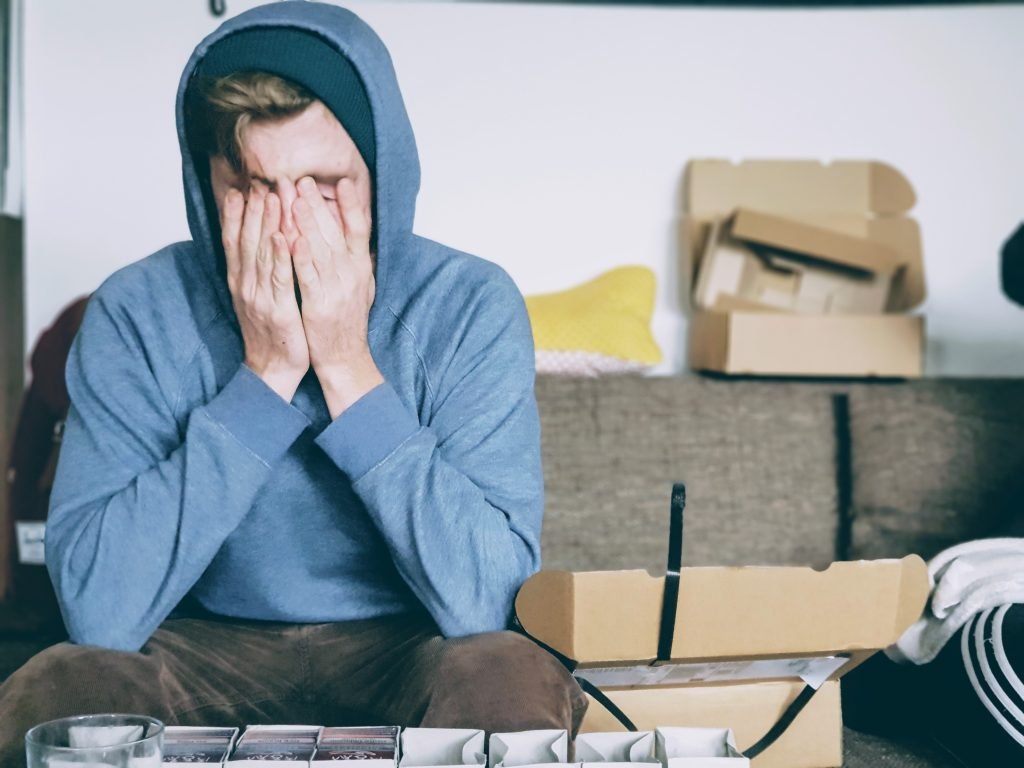Before diving in, I’d like to explain my word choice. Instead of “Mental Illness,” I will refer to it as “Mental Health Challenges.” I don’t like to use terms like “illness,” “issues”, or “problems.” The reason being is, unlike physical ailments, mental health plays a HUGE factor in our personalities, talents, and abilities. Illness, issues, and problems possess negative connotations. The second reason is – the term “challenges” can describe the physical and the mental equally accurately.
Mental health plays a huge factor in the well-being of employees, especially those who struggle with anxiety, depression, and bi-polar. The reason I bring these up is because they are the most common. Everyone experiences anxiety and depression to some degree. It’s healthy to have anxiety and depression when life events trigger fear and sadness.
However, those who suffer with anxiety and depression when life should be easy to enjoy makes the difference. Then, you add bi-polar to the mix and that is a whole new set of diagnoses. To start, let us look at the way mental health is perceived in the workplace. “In order to help others, we must put on our oxygen masks.” We repeatedly hear and say this phrase. For those living with a mental health diagnosis, we are constantly trying to do this, but when calling in sick with a panic attack is seen as “odd” by an employer, it only leads to further panic for the employee. In the past, I have called in sick with the flu when, in fact, it’s a panic attack.
Oftentimes, employees will try to find a person they are able to confide in just to get the validation that it’s okay to call in on bad days. The problem here is, the fact that employees are put into this position to begin with. There is a negative connotation and stigma when it comes to dealing with mental health concerns.

We shouldn’t feel the need to lie. So why do we? It is because employees with mental health challenges feel their jobs would be in jeopardy. Yes, there are laws protecting us, but how can that really be measured in the workplace once the person has the job? We definitely are not going to offer that information up in the interview. That is like a judge asking a jury to strike a piece of information from influencing their decision about the accused. We must first ask ourselves, why is a person with bi-polar any less productive or intelligent than a person with diabetes or high blood pressure. An aliment is an aliment. We are a human soul having a human experience. We are all different yet the same. Everything about us makes us into the person we are, regardless of the individual.
Another hurdle we face in the workplace concerns our medications. Depending on the diagnosis, those living with mental health challenges can take just as many pills as a cancer patient. Twenty years ago, I was diagnosed with extreme anxiety, moderate depression, ADHD, and bi-polar. In that time, I have taken every pill that Big Pharma has put out. Some days I would have to call in sick with the flu when I was simply reacting to a NEW med that was not working that day.

Numerous times I felt like I was a human pin-cushion for pills with my doctor being the seamstress. Currently, I am taking more pills than my 91-year-old grandmother. I take pills just to treat symptoms from another pill. I take two out of five every morning and afternoon. At night, I take ALL FIVE! That is a total of nine pills per day. With many ailments, meds are constantly adjusted and readjusted. And we don’t get a say in what works and doesn’t work because of the rise of prescription drug abuse.
Most of us struggle to get the drugs that simply are the best for us. I’ve found, at least in my own personal experience, that drugs that are considered narcotics and used correctly are the best ones. For me, they have had the least amount of side effects as well as have provided the best relief. The silver lining is Mental Health is getting the attention it deserves. From my experience, the negative connotations and stigmas are finally fading out. Ten to twenty years ago, no one except friends that I trusted knew about my anxiety. Now that I’m diagnosed with bipolar, unfortunately the stigma still makes me feel shame because of how bipolar has been viewed throughout the decades.
We first heard of medication like Lithium, which is one drug consistently used to treat bipolar disorder. The 1950’s “Leave it to Beaver Lifestyle” created these stigmas because of the choice of words they used. Terms like “illness”, “disease”, and “crazy” became the common verbiage for describing the diagnosis.
In college, I came across many female protagonists in Women’s Literature who were labeled as “crazy” because of symptoms of postpartum depression, which, at the time, people had very little knowledge of. Within this literary scope, women were forced to suppress everything about themselves to conform to a 100% man-driven society and world. They were forced to speak and behave one way, and any deviation smelled like mental illness. Husbands could legally admit their wives to psychiatric care where they would go on to have forced medication and even electroshock therapy.

Today, those of us that have learned to thrive in a society that expects us to be anything less than perfect are heroes. And the ones who came before us, are humanity’s historical heroes. We have gone from barely surviving a trip to the grocery store to being some of the greatest minds of our lifetime. So how do we fix this? AWARENESS and EDUCATION!!!!!

Everyone needs to get educated! Employers and their companies need to educate themselves and all employees on mental health, PERIOD. Their employees NEED to feel accepted, supported, and reassured that their jobs are NOT in jeopardy when they are about to start a new “med cocktail” or need to take a “mental health day” rather than a sick day.
When I taught public high school, our campus always supported mental health days, but as an athletic coach, the pressure to never miss a practice or a game was my biggest trigger. It was okay for me to miss classes, but I could never miss a game or practice without feeling the passive aggressive isolation from the other coaches. The truth is, more often than not, mental health challenges are seen as a weakness and a liability. We can’t force humanity to change, but we have the power to normalize mental health diagnoses and treatments, and we do this by speaking out! That is why I’m writing this. As a screenwriter, mental health is a recurring archetype I use in ALL of my characters. But why?
Because it makes the heroes’ journeys even MORE inspiring, respected, and hopefully gives someone like my younger self all the validation they need to speak their truth and shake off the shame of not being like everyone else. The truth is… adversity makes us better, makes us kinder, and more accepting and understanding.

This is why I refer to “Mental Health Challenges” because my diagnoses are not illnesses; it’s a challenge to wake up every day, which makes me a better friend, sister, partner, and most importantly a writer who has more empathy for others than if I was anything other than me. Thank God, we have had celebrities, artists, musicians, writers, and those in the public eye share their stories. However, why does our society sympathize with a celebrity announcing their battle with depression BUT not a co-worker that called in with panic attacks? There was one episode of Modern Love with Anne Hathaway, who plays a highly successful lawyer who is bipolar. Over the course of an hour, we see her manic episodes turn to days of depression. I never felt more understood like that story was specially written for Jessica Nile Brunelle.
When COVID hit, I think working from home was an instant relief for many professionals who have mental health challenges. We are survivors, but JUST surviving is no way to live life. So how do we THRIVE? The workplace must foster a positive environment. People with a mental health diagnosis are high functional thinkers. We are highly intelligent and perfectionists to a fault. Stress and a hostile workplace is the main factor that affects productivity. We can’t control people’s thoughts and opinions, but we damn sure can shape them.

Those with depression, anxiety, bipolar, or any other diagnosis may in fact, for the first time, THRIVE by working from home. Many people manage their mental health as a part to ¾ time job; therefore, working from home allows employees to have the freedom to manage and self-delegate how they balance their daily responsibilities and needs. For example, a person with an introverted personality who is diagnosed with anxiety will be triggered into a stressful state simply thinking about being in a public setting.
Those who struggle with depression or bipolar may have a bad few days during the week, but by the weekend, they are back on top and knock out all the work that weekend. The one drawback or concern I see working from home, especially those with social anxiety, is that not having to report to a job keeps them from socializing. BUT, this is not for me to judge how they socialize. What is best for the individual MUST be left up to the individual in their own private life? Employers are not therapists, councilors, family, or friends. An employer’s focus should only concern the job position and the employee’s ability to deliver quality work in a non-biased work establishment.
~ Jessica Brunelle

As I grew-up, writing and reading became a refuge. It was my escape. I always dreamed of writing and directing movies but film school was not in the cards, so I earned my degree in English literature and became a teacher. After COVID, I made the courageous decision to use my lockdown time to focus on screenwriting full-time and less than two years I finished my first script.

